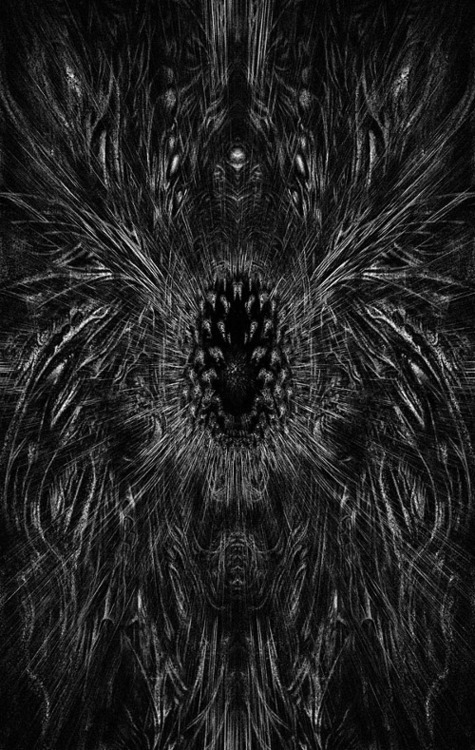LOVECRAFT’S MONSTERS preview: “The Sect of the Idiot” by Thomas Ligotti

Over the next two weeks in celebration of the forthcoming Lovecraft’s Monsters, Tachyon and editor Ellen Datlow present excerpts from a selection of the volume’s horrifying tales.have presented excerpts from a selection of the volume’s horrifying tales.
Today’s selection comes from “The Sect of the Idiot” by Thomas Ligotti.

Soon after arriving in the town—whose identity, along with my own, it is best not to bring to light—I was settled in a high room overlooking the ideal of my dreams through diamond panes. How many times had I already lingered in mind before these windows and roamed in reverie the streets I now gazed upon below.
I discovered an infinite stillness on foggy mornings, miracles of silence on indolent afternoons, and the strangely flickering tableau of neverending nights. A sense of serene enclosure was conveyed by every aspect of the old town. There were balconies, railed porches, and jutting upper stories of shops and houses that created intermittent arcades over sidewalks. Colossal roofs overhung entire streets and transformed them into the corridors of a single structure containing an uncanny multitude of rooms. And these fantastic crowns were echoed below by lesser roofs that drooped above windows like half-closed eyelids and turned each narrow doorway into a magician’s cabinet harboring deceptive depths of shadow.
It is difficult to explain, then, how the old town also conveyed an impression of endlessness, of proliferating unseen dimensions, at the same time that it served as the very image of a claustrophobe’s nightmare. Even the nights above the great roofs of the town seemed merely the uppermost level of an earthbound estate, at most an old attic in which the stars were useless heirlooms and the moon a dusty trunk of dreams. And this paradox was precisely the source of the town’s enchantment. I imagined the heavens themselves as part of an essentially interior decor. By day: heaps of clouds like dust balls floated across the empty rooms of the sky. By night: a fluorescent map of the cosmos was painted upon a great black ceiling. How I ached to live forever in this province of medieval autumns and mute winters, serving out my sentence of life among all the visible and invisible wonders I had only dreamed about from so far away.
But no existence, however visionary, is without its trials and traps.
After only a few days in the old town, I had been made acutely sensitive by the solitude of the place and by the solitary manner of my life. Late one afternoon I was relaxing in a chair beside those kaleidoscopic windows when there was a knock at the door. It was only the faintest of knocks, but so unanticipated was this elementary event, and so developed was my sensitivity, that it seemed like some unwonted upheaval of atmospheric forces, a kind of cataclysm of empty space, an earthquake in the invisible. Hesitantly I walked across the room and stood before the door, which was only a simple brown slab without molding around its frame. I opened it.
“Oh,” said the little man waiting in the hallway outside. He had neatly groomed silver hair and strikingly clear eyes. “This is embarrassing. I must have been given the wrong address. The handwriting on this note is such chaos.” He looked at the crumpled piece of paper in his hand. “Ha! Never mind, I’ll go back and check.”
However, the man did not immediately leave the scene of his embarrassment; instead, he pushed himself upwards on the points of his tiny shoes and stared over my shoulder into my room. His entire body, compact as it was in stature, seemed to be in a state of concentrated excitement. Finally he said, “Beautiful view from your room,” and he smiled a very tight little smile.
“Yes, it is,” I replied, glancing back into the room and not really knowing what to think. When I turned around the man was gone.
For a few startled moments I did not move. Then I stepped into the hallway and gazed up and down its dim length. It was not very wide, nor did it extend a great distance before turning a windowless corner. All the doors to the other rooms were closed, and not the slightest noise emerged from any of them. At last I heard what sounded like footsteps descending flights of stairs on the floors below, faintly echoing through the silence, speaking the quiet language of old rooming houses. I felt relieved and returned to my room.
For more information on Lovecraft’s Monsters, visit the Tachyon site.
Cover and illustration by John Coulthart.
